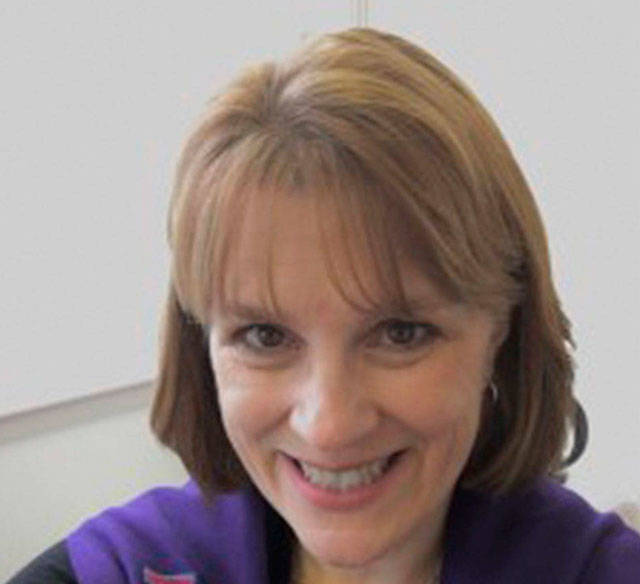When I was in the ninth grade, I had an encounter with a classmate that changed me forever.
I was born and raised in North Carolina. In my ninth-grade American History class, we studied the Civil War. I was asked to work on a worksheet with another student, who was African American. My parents had taught me the names of generals and battlefields. The worksheet looked easy. In the end, there was a place to name others who fought in the war for extra credit. I thought we were done. I knew all of the answers were right when my partner said, “But they are all white.”
And she listed the names of African Americans that she knew fought in the war. She was brave enough to be honest with me: “I like you and I thought we were friends but we’re not going to be if you don’t see that I’m Black and just having to be graded on my knowledge of that war and time is painful.”
That day has stayed with me all of my life. “You don’t see that I’m Black.” Of course, I knew she was Black — I could see her physically but that day I took my first step in seeing color, not just physically but really seeing it and what it could cost. Studying the war wasn’t painful for me, it was just history. But for her, it was intensely painful and that day, at that moment, I began to see color.
As a pastor, I regularly talk about the sacred worth of all of humankind. The Bible is clear, “Humankind is created in God’s own image.” Not some, but all. I profess it, I claim it, I preach it and I regularly remind others of their sacred worth. And because of that belief, I must also see color. I see color because not to see it denies the experience of others. Of course, I believe that all lives matter but, as a white person, I’ve never thought mine didn’t. My experience as a person who is part of the dominant culture taught me that I matter. But what I continue to learn from my friends of color is that their lived experience has taught them otherwise.
When I say Black Lives Matter it is because there has been a hole in our cultural education and our systemic structures that haven’t honored that. Until we see color, we can’t see what color has cost others and we can’t learn to work for a just and equitable world where color often forces people to the margins.
As a Christian, I believe in Jesus as Lord. I believe in a human being who was a person of color himself yet, throughout my life, the larger church has repeatedly presented me with images of a Jesus whose skin looks like mine instead. We must change.
This is far bigger and more insidious than what has been recorded on cell phone videos. I live in a system where I am statistically more likely to succeed than my African American counterparts. The median net worth of white households is about 10 times the median net worth of Black households. The median income for black households is a little less than 60% of that of white households. And the number of black Americans living in poverty is double that of white Americans. *(Luhby, 2020)
My life’s calling is to proclaim God’s love for all people and to do my best to live as Jesus taught. He consistently sought out those on the margins, without privilege, and affirmed that they mattered. He crossed cultural and societal boundaries, preaching radical love and grace for all.
When our leadership at Vashon Presbyterian Church was working on our mission statement earlier this year, one person said, “Jesus already gave it to us — ‘Love one another.’” We are called to love. We are called to accept others for who they are, honoring their story, even and especially when our own privilege has caused them pain. We are commanded by Jesus to share God’s love with others in how we live our lives. All human beings have sacred worth.
At the heart of the gospel, Jesus made it clear to those on society’s margins that they mattered to him and to God. In order to come in from the margins and experience love and equality, you have to be seen and to hear that you matter. People of color matter.
Rev. Leigh Weber is the pastor of Vashon Presbyterian Church.
*Luhby, T. (2020). US black-white inequality in six stark charts. cnn.com.



